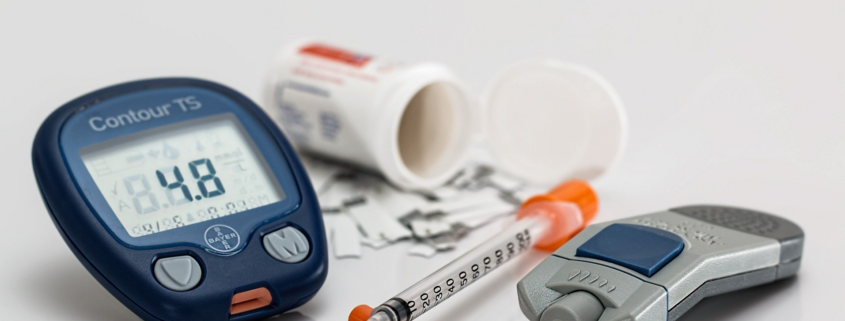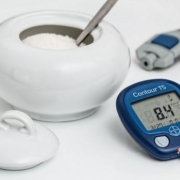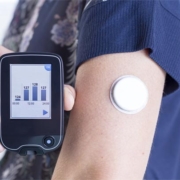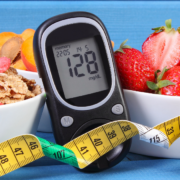Why Is My A1c High?
Your daily random blood glucose readings are good. You watch your carbohydrate intake, exercise, take your medication as prescribed, avoid smoking, and try to live a healthy lifestyle. But still, your Hemoglobin A1c (“HbA1c” or just “A1c”) is over 7.0 which leaves you frustrated, wondering what you are doing wrong. One thing to consider is that you check your blood glucose only a limited number of times daily. Your daily readings may look good the 3-4 times you check, but what is your blood glucose doing throughout the day when you are not checking it?
Taking daily readings is good, but taking an A1c test through your healthcare provider every 3-6 months gives insight into your long-term glucose levels. The higher the glucose in your bloodstream, the greater the glucose attachment to the hemoglobin portion of your red blood cells. The lifetime of your red blood cells is 2-3 months; therefore your A1c reading reflects the glucose level of your blood over the past 2-3 months. A target A1c for most adults is under 7.0.
Insulin from your pancreas is essential for properly regulated glucose throughout the day, which determines your A1c. Several factors can interfere with the work insulin is trying to do, including:
Excess body weight
The accumulation of body fat, especially visceral fat (the kind that surrounds your internal organs causing an apple shape), interferes with the work of insulin. Just a 5-10% decrease in body weight will improve glucose levels.
Stress
When you are experiencing stress it is your body signaling that something needs to change. Unfortunately, many people choose to push through stress on a daily basis and never consider addressing the source of stress in their life. Stress contributes to insulin resistance. It can also raise your epinephrine and cortisol levels, causing an increase in A1c. You also may be one of those people who engage in stress-eating for temporary calming which will elevate your weight, blood glucose, and A1c.
Sleep deprivation
Poor sleep patterns impair glucose metabolism. If you are getting less than 7-8 hours of sleep on a regular basis, it would be wise to address your “sleep hygiene” (such as developing a calming routine at bedtime) to help lower your blood glucose.
Portion control
Even though you are choosing healthy foods, portion control is still necessary to manage your A1C. Healthy foods still contain carbohydrates, and although you need to limit carbohydrates, you do need appropriate amounts of them for fuel.
Exercise Levels
Cardiovascular and strength or resistance training are important to maintain your weight and manage your glucose and insulin levels. Strength training helps your body respond to insulin better, so it should be a part of your weekly fitness plan. Cardiovascular exercise directly improves blood glucose in the moment.
Mindfulness
“Mindfulness” is when your mind is fully attending to what’s happening and what you are doing in the present moment. Often, we are not fully present for our current moments of life experience. We take flight and soon we are worrying about our future or revisiting our past with obsessive thoughts. Increasing mindfulness lowers blood glucose and eventually A1c.
So remember – you do have control over many of the factors that affect your A1c. CB









